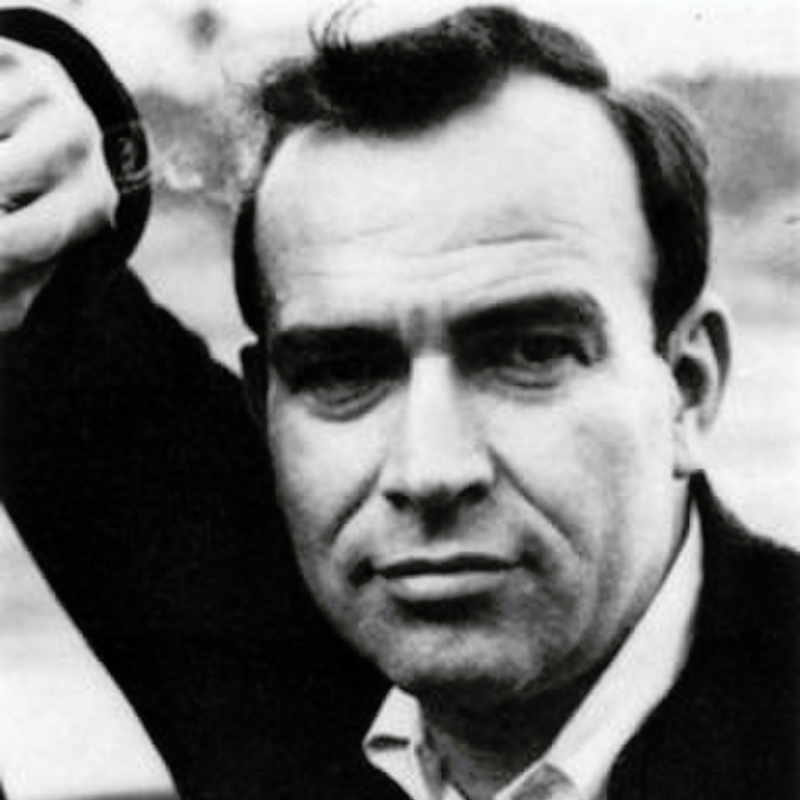
Fred Ebb, the lyricist half of the legendary songwriting team, Kander & Ebb that has produced Cabaret, Woman of the Year, The Act and, of course the incomparable Chicago was born in New York City, NY on April 8, 1935.
His lifelong love of the theater began while Ebb was still a child, and independently from the rest of his family, as there was no music ever performed or listened to in his childhood home. He graduated from New York University and following received his Masters Degree in English Literature from Columbia University. In the early 1950’s, Ebb worked at a hosiery company, in a department store credit office, as a trucker’s helper, and bronzed baby shoes.
His first songwriting opportunity came when a friend introduced him to songwriter Phil Springer, a composer whom Ebb credits for teaching prosody, form, AABA as opposed to Verse-Chorus, and technique in general. The Ebb-Springer team worked with eight hours every day writing songs in New York’s famed Brill Building. The first professional songwriting assignment came in 1953 when he and Springer were hired by Columbia Records to write a song for Judy Garland called “Heartbroken.” Highlights from the Springer-Ebb catalog include “How Little We Know”, “Santa Baby”, “Moonlight Gambler” and “Nevertheless I Never Lost the Blues”.
Throughout the late 1950s and early 1960s, Ebb wrote for nightclub acts and revues, as well as for the television series This Was the Week That Was. After a few unsuccessful Broadway productions, Ebb was introduced to composer John Kander in 1964. The legendary team would stay together for 21 years.
The first successful Kander & Ebb collaboration was on the song “My Coloring Book,” recorded by Kitty Kallen, Sandy Stewart, and Barbra Streisand. The duo’s first stage musical, Golden Gate, went unrealized, but it did convince producer Harold Prince to hire them for his new Broadway show Flora, The Red Menace, a satire of Greenwich Village bohemian culture and radical politics that starred Liza Minnelli in her Tony Award-winning Broadway debut. Though not a hit, the show solidified Kander and Ebb as a team and Liza Minnelli as a star.
The next year, Prince commissioned Kander & Ebb to create the score for a musical version of I Am A Camera, which was to be produced under the name of Cabaret. In 1966, Cabaret opened, winning seven Tony Awards including Best Musical and Best Score of the Season Award. The original production ran for 1,166 performances, has been revived three times and produced a 1972 film version starring Liza Minnelli (a role which earned her a Best Actress Oscar Award).
1968 produced two other musicals, The Happy Time and Zorba and three years later the team produced 70, Girls, 70.
In 1972, Kander & Ebb wrote a number of songs for Minnelli’s television special, Liza With a Z, which received an Emmy for Outstanding Single Program – Variety or Popular Music. After contributing five songs, including “How Lucky Can You Get” and “Let’s Hear It For Me,” to the 1975 movie Funny Lady, they launched the Broadway musical Chicago, which was largely overlooked during its original run but was revived to massive success two decades later. Chicago had another incarnation in 2002, when the film version received an Oscar for Best Picture and revived the movie musical.
In 1977, Kander & Ebb collaborated with Martin Scorsese on the movie New York, New York; the title song was introduced by Minnelli, and later recorded by Frank Sinatra, and became the unofficial theme song of New York City. The Minnelli Broadway vehicle The Act also opened that year.
After a four-year absence from Broadway, Kander and Ebb returned with 1981’s Woman of the Year, which starred Lauren Bacall and was based on the 1942 Katharine Hepburn movie. The Rink, which opened in 1984, starred Chita Rivera and Minnelli, with the songs “Colored Lights”, “Chief Cook and Bottle Washer,” and “Mrs. A.” In 1985, Kander & Ebb opened Kiss of the Spider Woman and Steel Pier in 1997. In 1999, Ebb wrote and directed Minnelli on Minnelli, starring Liza Minnelli in a Broadway tribute to the movie musicals directed by her father Vincente Minnelli.
Courtesy Songwriters Hall of Fame


